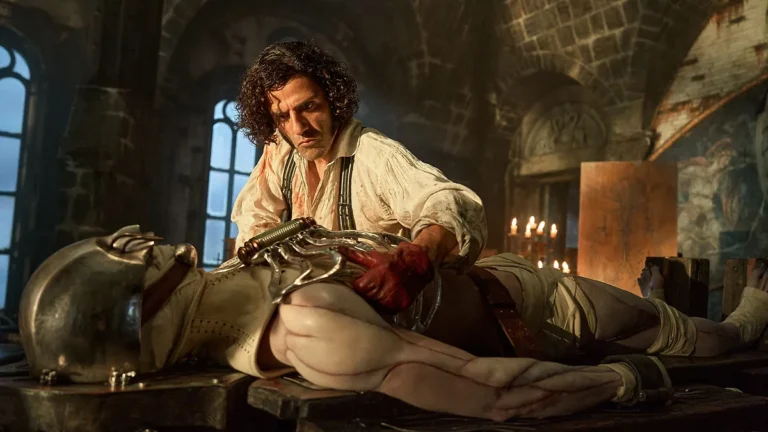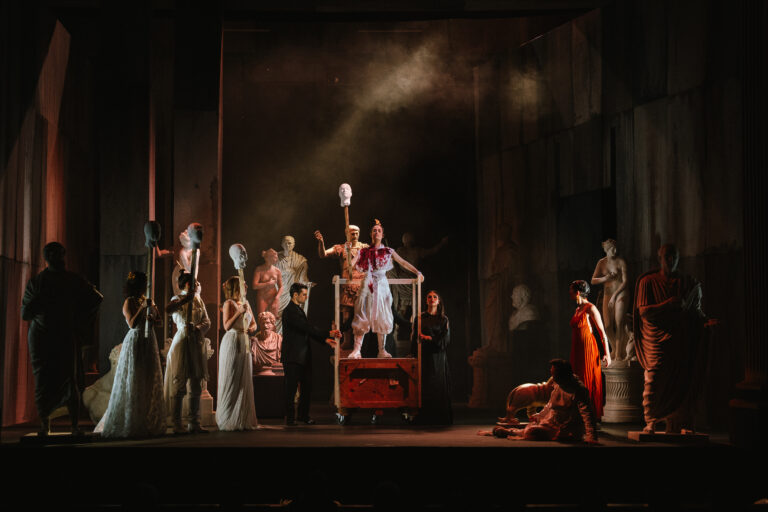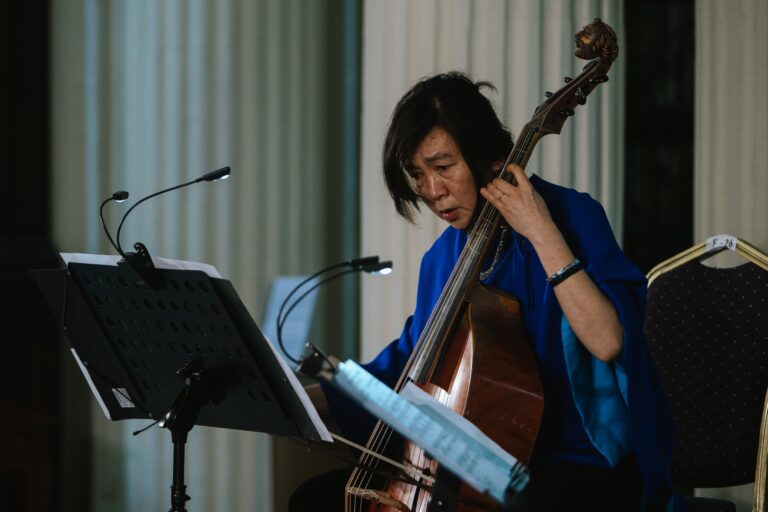Forming part of Inizjamed’s 2025 Malta Mediterranean Literature Festival, this event certainly promised a lot by the nature of its eye-catching title. Hosting it at Vincent’s Eco Farm was a distinctive choice that worked rather well. The presence of vicious mosquitoes at the onset (for which there could have been better preparation or warning) was significantly uncomfortable, but thankfully, these subsided once darkness set in. Other than that, the location was atmospherically lit and spacious, while providing a sense of shelter from the urban hustle and bustle. It might not have been exploited thematically, but I think that would have been a secondary bonus, and such a choice of venue goes a long way in assuaging the loss of Fort St. Elmo. I must admit that, once again, the lack of a robust book-buying section was glaring, but I can’t really fault the organisers for this; it is more a reflection of Malta’s unfortunate state of affairs in this regard (Mallia & D’Amato, you are so terribly missed).
The event consisted of a panel of three speakers: Omar N’Shea, Michael Zammit, and Carmen Camacho, with Glen Calleja serving as moderator. To set things off, Glen asked each speaker to reflect on what literary archaeology means to them and how it manifests in their work. The speakers’ varied backgrounds and approaches led to an eclectic round of interpretations, a testament to strong panel curation. I also believe that the moderator helped shape the conversation by drawing attention to contentious statements and encouraging the speakers to elaborate further.
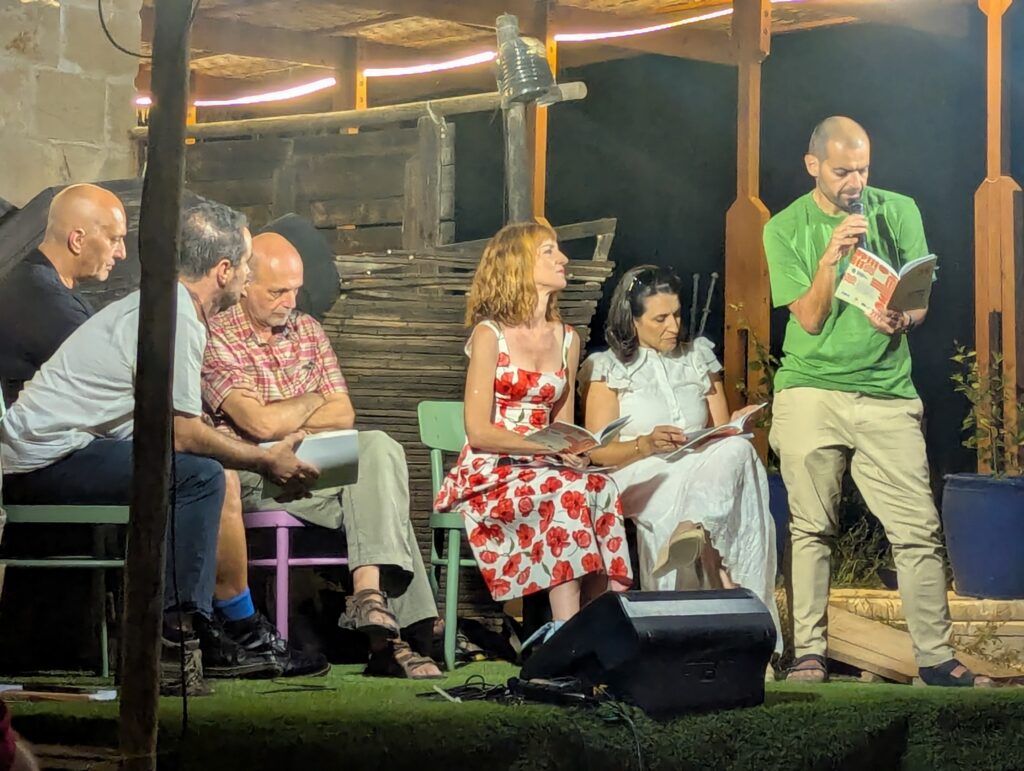
Quite a number of interesting points were raised here, but I have to personally single out Michael Zammit. His voice was a voice I hadn’t heard in fifteen years, back when I had read for a degree in philosophy, and thus, the night became an unwitting archaeology of the self for me. I found Zammit’s musings particularly resonant, especially when he disclosed that, for him, uncovering the meaning of words begins with the importance of listening. This, coupled with his emphasis on defining consciousness as awareness and how we should strive to take a step back, slow down, and pay attention to our surroundings, is a much-needed message. He brought to mind Richard Powers’ magnificent The Overstory, and his words became a bridge between a past version of myself and my current one, whose primary passion now lies in wildlife and nature.
Following these rounds, the speakers were requested to read an excerpt from their works. Sometimes such readings fall into the trap of being too long or arguably not impactful enough; however, I am glad that this did not occur here. All three speakers opted for concise selections that were evocative. As per Inizjamed’s tradition, there was a reading that repeated a translation and the original language. I have to be honest and state that this tended to become a little overplayed in recent editions of the festival, becoming tiring to sit through when the excerpt was long. This time round, however, since it was limited to just a couple of translated poems, the readings and repetitions did not burden the audience. In fact, Jean Paul Borg’s reading of Camacho’s poetry was strong, and his translation commendable.
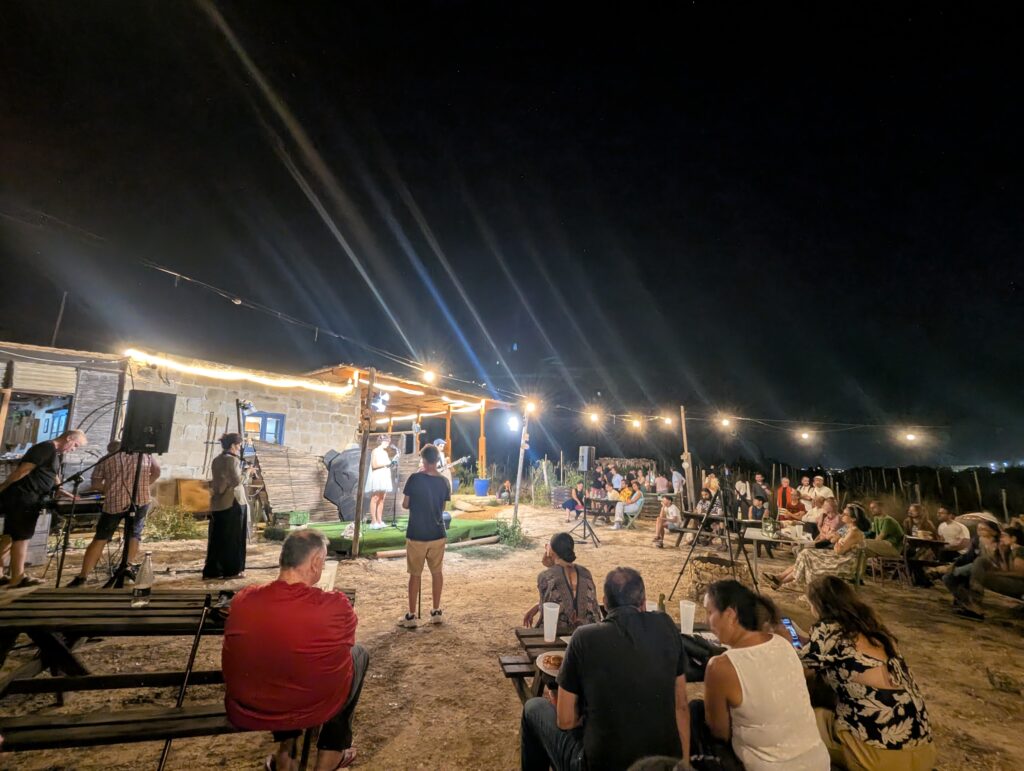
After the readings, Calleja asked the speakers to discuss their writing process. It is at this stage that I believe the event could have proceeded better. It is at this stage, I believe, that a focus on the psychological, social, and political could have been further explored, with such themes being rife with possibilities. Bearing in mind the local political context, for instance, it had recently been published that the Government intended to pass planning reforms, which caused controversy. While at the start of the event, it was alluded to that the meanings of words are not always necessarily found at the superficial level, the conversation remained at face value. Though to be fair, Omar N’Shea did touch on how his writing serves as a tool to go back and confront his social class, but time constraints prevented him from articulating further, which might have also restricted the other speakers from delving deeper. While certain topics may not have been mentioned or discussed, I believe that the decision not to take the discussion outside the internal world of writing was a significantly mistaken one, one that played it all too safe and resulted in the final part feeling alienating.
The event concluded with some songs from Kym Pepe accompanied by Jimmy Bartolo. Her ethereally beautiful voice was a perfect fit with the ambience. Overall, it was a very pleasant evening even if it also carried a strong sense of unfulfilled potential.


